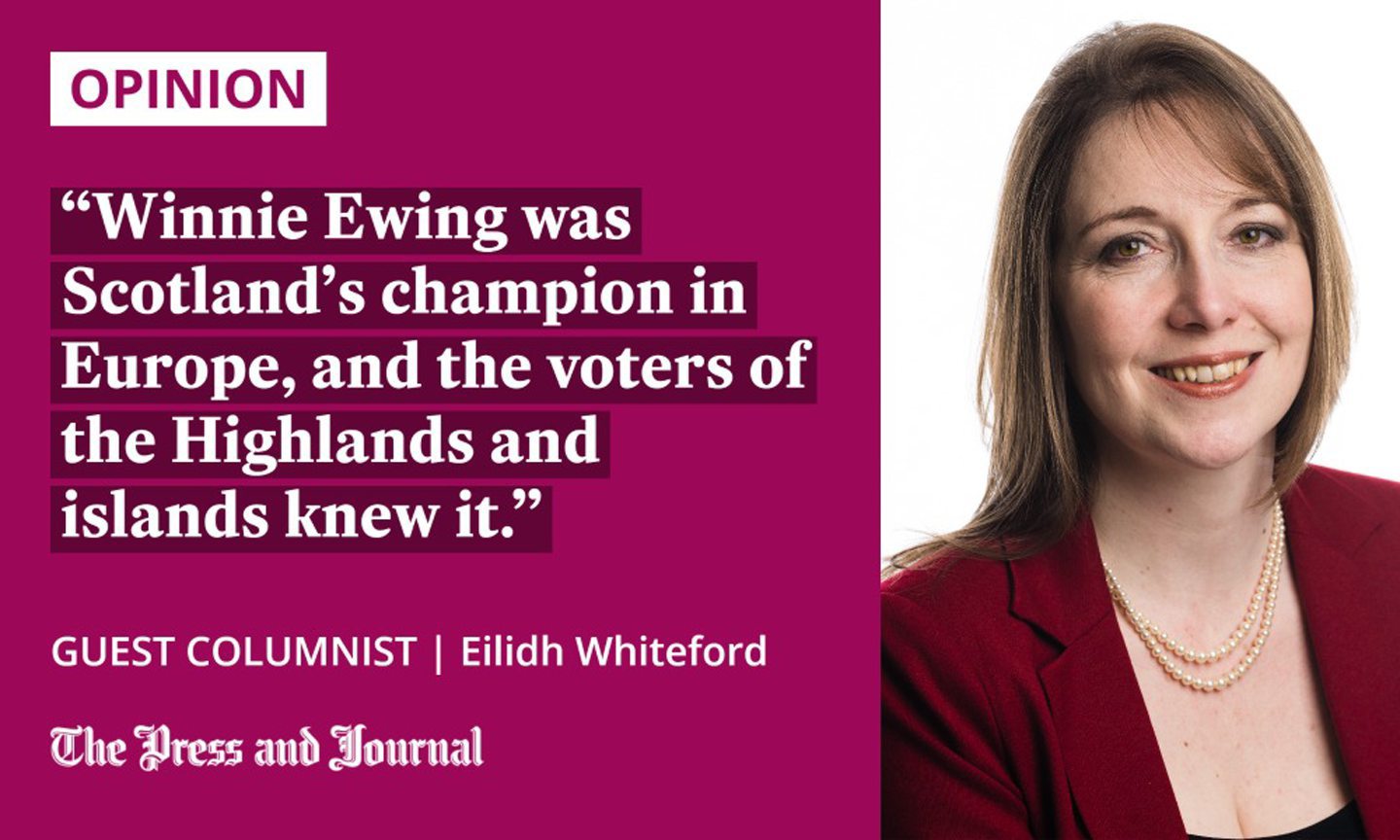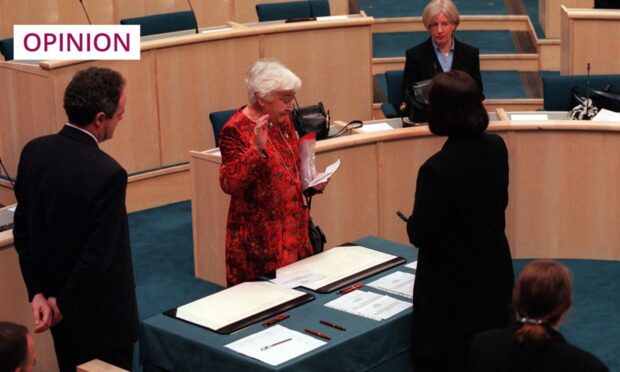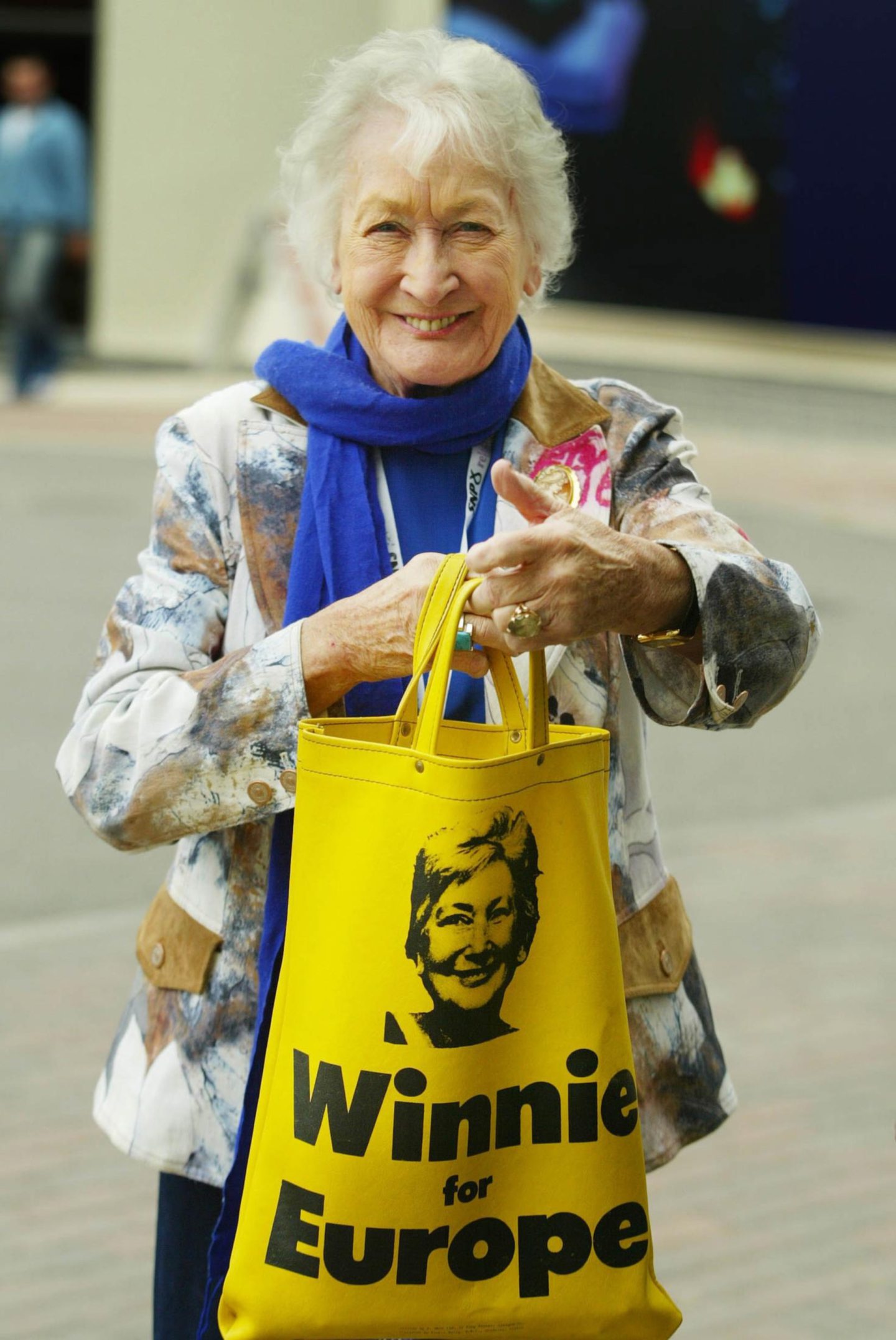Few politicians have a transformative effect on the political landscape around them, but Winnie Ewing was undoubtedly one of them.
It’s hard to overestimate Ewing’s impact on Scottish public life and the movement for home rule. When she won the 1967 Hamilton by-election, against all odds, she sent a shockwave through the British establishment.
The reaction of the then Labour government to her victory was to establish the Kilbrandon Commission, a process that paved the way to the establishment of the Scottish parliament, famously “reconvened” in 1999 by Winnie Ewing herself, presiding over its opening session as the oldest MSP elected as part of the initial cohort.
In a career that spanned four decades, Ewing served in the House of Commons as MP for Hamilton (1967-70) and Moray and Nairn (1974-79), and she represented the Highlands and islands in the Scottish Parliament as a regional list MSP from 1999 to 2003. However, it was her long stint in the European parliament that cemented her reputation.
She was first elected to represent the Highlands and islands in Brussels and Strasbourg in 1979, and was re-elected a further three times, increasing her share of the vote at each subsequent election.

Le Monde dubbed her “Madame Écosse” because she pursued Scotland’s interests so relentlessly in Europe, building friendships and alliances along the way – and the moniker stuck. Winnie Ewing was Scotland’s champion in Europe, and the voters of the Highlands and islands knew it.
When Winnie spoke, folk stopped to listen
Growing up on the Moray Firth, I well remember Winnie campaigning along the coast with her colleague, former Banffshire MP, Hamish Watt. She brought colour and more than a touch of glamour to north-east politics.
When Winnie spoke, folk stopped to listen. A charismatic and compelling orator, she always used measured tones and cogent arguments to persuade others of her case. A solicitor by profession, she always spoke to the point and did not suffer fools, but she also had deep political intuition and was capable of winning both hearts and heads in debates about Scotland’s future.
She often found herself in a lonely position in politics, sometimes the sole SNP representative in democratic fora, often the only woman in the room. But Winnie Ewing was a woman of enormous personal courage and independent mind, willing to stand up for what she believed to be right, even when it left her out on a limb. (Traits the evidence of recent days suggests she has bequeathed to her son, Fergus.)
Winnie’s intellect, her instinctive ability to relate to others, and her unshakeable belief in Scotland’s potential made her a formidable political communicator. The influence of this remarkable woman has been immeasurable, and she will be remembered as a genuinely iconic figurehead of the national movement.
Eilidh Whiteford was SNP MP for Banff and Buchan between 2010 and 2017

